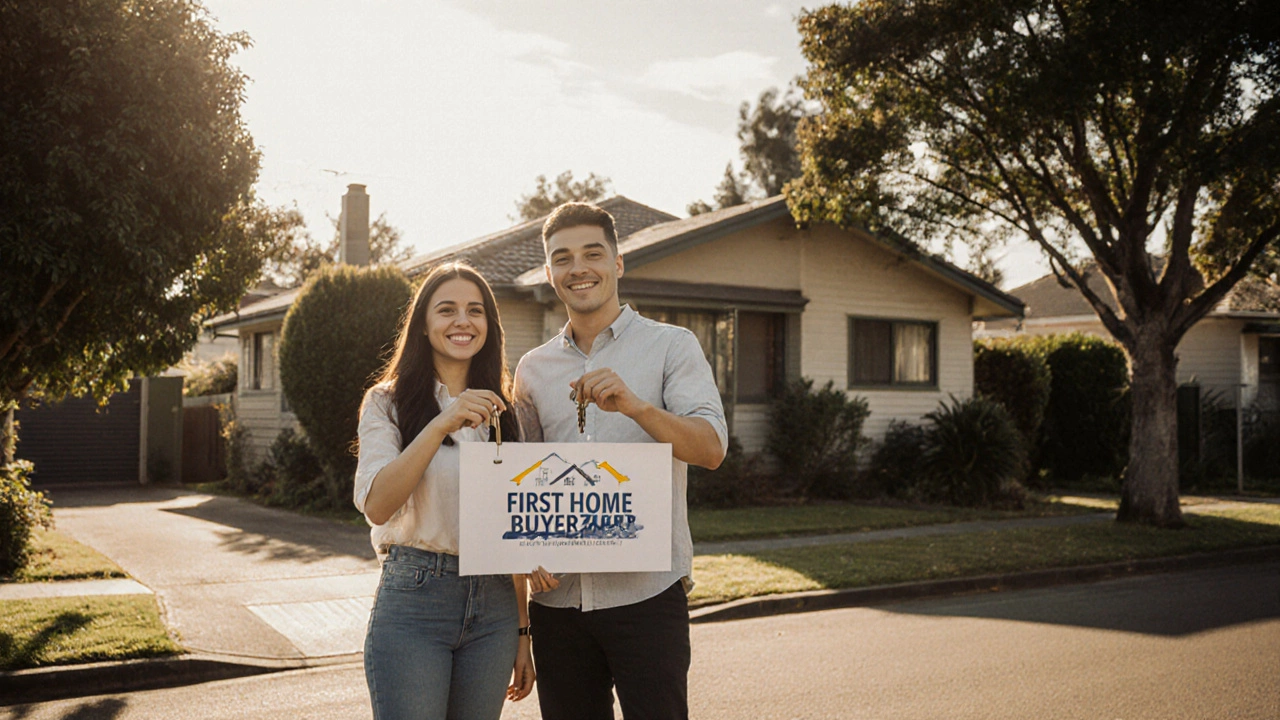You can buy a $100,000 house with as little as $1,000 down-or even nothing-depending on your loan type and location. This guide breaks down down payment options for first-time buyers, hidden costs, and how to qualify.
Minimum Down Payment: How Little Do You Actually Need?
Thinking about buying a house but scared by the word "down payment"? You’re not alone. Many first‑time buyers assume they need 20% saved up, but the reality is far kinder. In 2025 you can often get a home with as little as 3% of the purchase price, and some loans even let you skip the down payment entirely.
What Determines the Lowest Down Payment?
Three main factors decide how low your down payment can be: the type of loan you choose, your credit score, and any assistance programs you qualify for. Conventional loans from big banks usually start at 5% if you have a solid credit history. FHA loans, which are popular with new buyers, let you put down just 3.5% as long as your credit is above 580. If you have a military background, VA loans can offer zero down, and USDA loans cover rural properties with no money down at all.
Saving Smart and Finding Help
Even a 3% down payment can feel like a mountain if you’re starting from scratch. Break it into bite‑size goals: set up an automatic transfer to a high‑interest savings account, cut back on non‑essentials, and consider a side gig to boost income. While you’re saving, hunt for local down‑payment assistance grants – many counties and states have funds that cover part or all of that 3%.
Don’t forget about gift funds. A close family member can give you money for the down payment, and most lenders accept it as long as you document the gift properly. This can shave weeks or months off your savings timeline.
Another tip: lock in a mortgage rate early. A lower rate reduces your monthly payment, freeing up cash that you can redirect toward the down payment. Talk to a mortgage broker about rate‑lock options and see if they offer any first‑time‑buyer discounts.
Lastly, keep an eye on your credit score. A higher score not only lowers your interest rate but can also unlock loan programs that require less cash upfront. Pay down any lingering credit‑card balances, avoid opening new accounts before you apply, and check your credit report for errors.
Bottom line: you don’t need a massive pile of cash to own a home. By picking the right loan, boosting your credit, and tapping into assistance programs, the "minimum" down payment can be as low as zero. Start small, stay consistent, and you’ll be holding the keys sooner than you think.
You don't need 10% down to buy a house in New Zealand-5% is possible for first-time buyers. But what are the real requirements, hidden costs, and government help available? Here's what actually matters.
Learn exactly how much you need as a minimum down payment for a house, what counts, tips to boost your approval odds, and how first-timers can get ahead.


